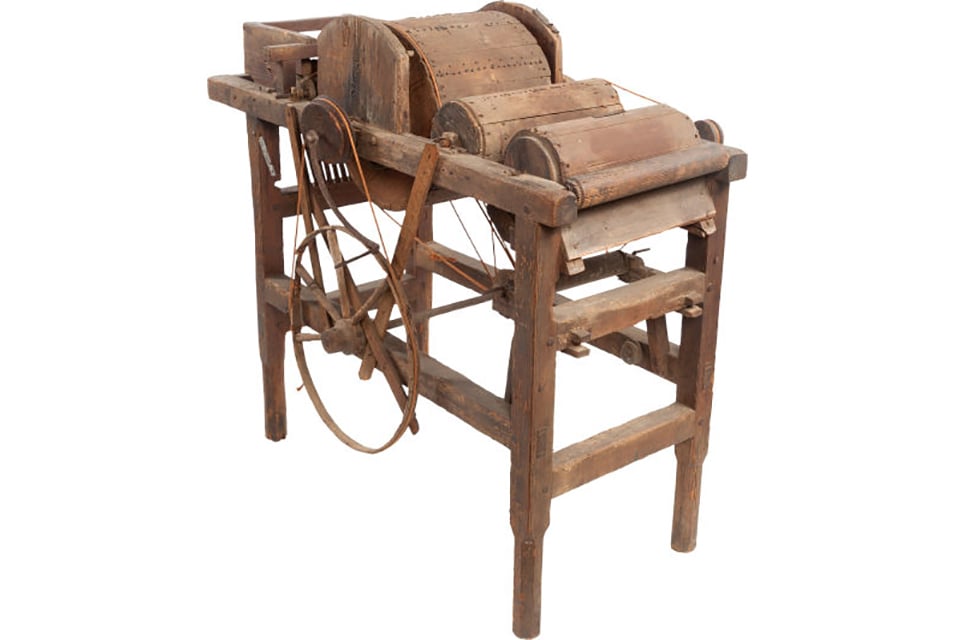Auctions
Historic Eli Whitney Cotton Gin Hits the Auction Block


Sarah Cascone

History buffs take note: an early working model of one of the most important inventions of the 19th century, Eli Whitney’s cotton gin, will be auctioned next week in Dallas at Heritage Auctions.
As reported by ArtDaily, the machine, which dates to the early 1800s, but is not thought to be a Whitney original, is expected to fetch upwards of $10,000 at the Americana & Political Signature Auction on November 8. This cotton gin is truly “museum-quality,” having spent 60 years in the collection of the Atlanta Museum.
The museum’s founder, J.H. Elliott, bought the machine in 1944, saving it, as per a contemporaneous Atlanta Journal article, from being sold to a contingent from Whitney’s native New Hampshire who wished to “cart it away to Yankee-land.” Previously, the cotton gin had belonged to J.L. Burkett, the owner the farm where Whitney had operated his original workshop. After snatching the cotton gin from the hands of the Northerners, Elliott “immediately telephoned the good news to the governor.”
Invented in 1794, Whitney’s cotton gin heralded the industrial revolution, separating cotton from its seeds much faster than could ever be done by hand. Whitney also pioneered the concept of interchangeable parts, standardizing production so that interchangeability became the standard, eliminating the need to create custom-designed parts for each new device.
Examples of the cotton gin are found in museums across the country. This particular model was included in the 2006–07 exhibition “Slavery on Trial: The Long Road to Freedom” at the Gerald R. Ford Presidential Museum in Grand Rapids, Michigan.
Other expected highlights from the sale include a direct rice paper printing of the Declaration of Independence, and an original blueprint for Fallingwater, Frank Lloyd Wright’s iconic home in Stewart Township, Pennsylvania, both with a pre-sale estimate of over $12,000.